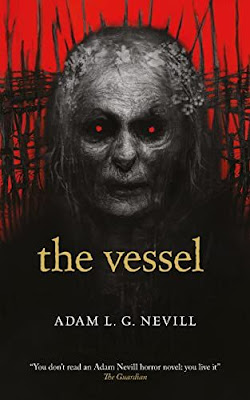In Stephen King's memoir, "On Writing" he recounts a conversation with Amy Tan in which he asked her if there was a question she was never asked in Q&A sessions, and her response was "They never ask about the language."
This line has stuck with me since I encountered it, and it has made me more mindful of my reading since then; I pay much more attention to the way an author uses language, and it is one of the criteria by which I determine the quality of an author or a work.
McKillip's book "The Forgotten Beasts of Eld" stood out to me like few others for its use of language. Written in the language of high fantasy (think Tolkien and C.S. Lewis), this story reads more like a poem than prose; her language has a lyrical idealism that is only found in the very best fantasy literature. Witness this piece of "dialogue" from the novel:
"I thought of you with your hair silver as snow all through that cold, slow journey from Sirle. I felt you troubled deep within me, and there was no other place in the world I would rather have been than in the cold night riding to you. When you opened your gates to me, I was home."
I cannot imagine many recent authors I've read even attempting a passage like that with a straight face, but McKillip carries off the entire book in that manner.
Now, I'll make a confession...no surprise to anyone who knows me...I don't generally like fantasy fiction. Oh, sure, I enjoy the Lord of the Rings as much as any reader, but when it comes to most modern fantasy, I tend to shy away from it. For one thing, there's hardly such a thing as a fantasy "novel" any more. There's fantasy sagas, epic series, cycles and chronicles aplenty, thousands of pages requiring a major commitment of time to read with no guarantee that the story will ever even be finished (yes, I'm looking at you GRRM). On top of that, I can't seem to handle the names in fantasy novels; there's far too many hyphens and apostrophes in there for me to be comfortable with them. When an author starts telling me the saga of L'erin-Medd'ezzath, archmage of Tir Cinealta, I'm out and heading for a stack of Donald Westlakes.
It's very refreshing, then, when I find an occasional and rare fantasy novel that engages me the way this one did. "Forgotten Beasts" is not so much a read as it is an experience, like a fugue or a reverie. It stimulates the imagination with visions of high fantasy and removes the reader from their personal context into the ficton of the novel. It's characters are ideal figures, yet somehow still relatable, and still fantastic enough to inspire grand mental pictures of the kinds of world depicted by only the best fantasy artists.
This is a book for not only those who love high fantasy, but also those who love good literature. It is the kind of writing that much fantasy fiction aspires to be, and in achieving that transcends its genre in a way that echoes more popular authors whose work is considered more widely known.
"The Forgotten Beasts of Eld" is, of course, available to purchase on Amazon, or if you'd prefer to read it for free, there's several copies available to borrow at Archive.org.




